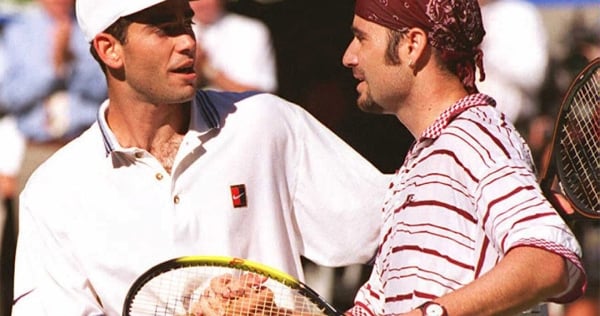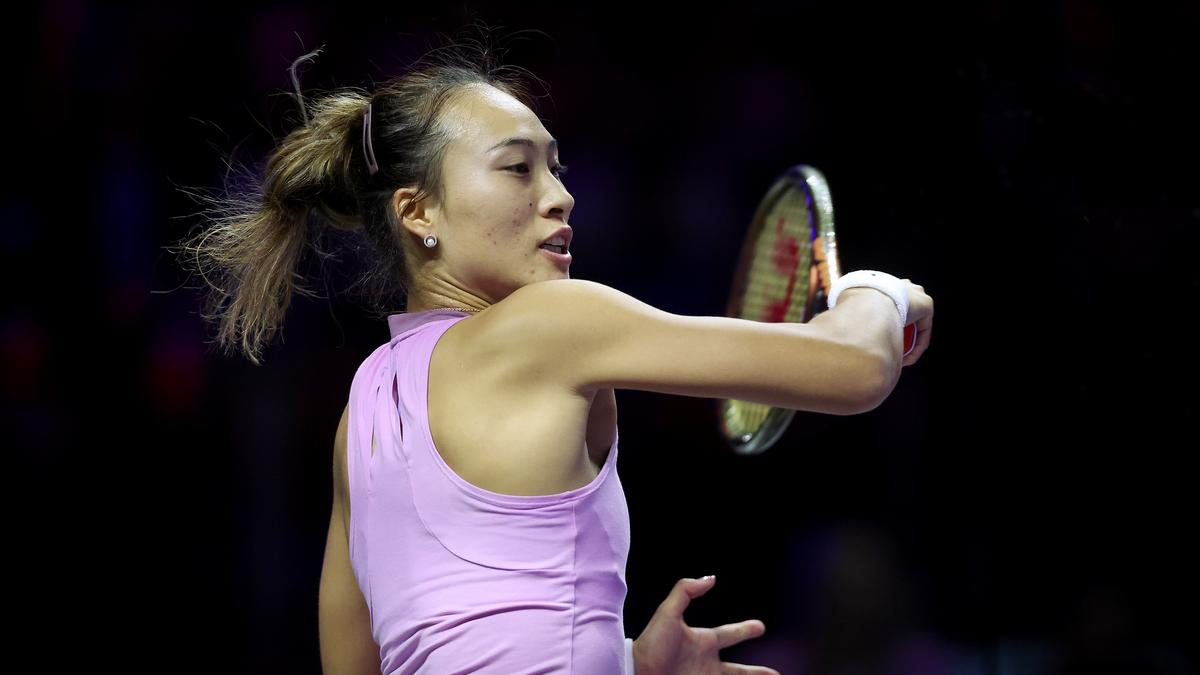AO Flashback: ‘Change-agent’ Agassi beats Sampras in blockbuster 1995 final

- by Admin
- September 30, 2024

Appropriately, the first Australian Open night-time semifinal, in 2000, featured none other than Agassi and Sampras.
Agassi also attracted new audiences to the tournament.
Gone were the denim shorts and long dyed hair of his early days on tour, but he nevertheless arrived at Australian Open 1995 wearing a bandana and earrings while also sporting sideburns and a beard.
“His look was very distinctive,” Petkovski noted. “He was galvanising and attractive to young kids, because he said, you can be a rebel and play tennis. You don’t have to wear a white polo shirt and baggy white shorts.
“So he spoke to the youth.”
“Cosmic signs”
Agassi tore through to the final without losing a set, conceding a measly average of 7.33 games per match. He bagelled Pat Rafter and Yevgeny Kafelnikov, respectively, in the third sets of their fourth-round and quarterfinal matches. He spent a cumulative total of just over eight hours on court to reach the final.
Sampras, meanwhile, laboured for more than 14 hours. He was forced to recover from two-sets-to-love down against both Magnus Larsson in the fourth round, and Courier in that emotional quarterfinal.
When they faced off on the final Sunday, Agassi’s extra freshness proved telling.
“He described the stadium as ‘absolutely beautiful’. He said the court surface, paraphrasing, could have been made-to-order for him. He loved the heat, as we know; the fan support for him was crazy,” Petkovski said of Agassi.
“And he just missed the Great Flood of Flinders Park – in the semifinal against Aaron Krickstein, he was up 6-4 6-4 3-0, and Krickstein pulled out with a sore groin. Moments later, the heavens opened, and Rod Laver Arena flooded. So he escaped that just in time.
“This was another sort of cosmic sign that things were aligning perfectly for Agassi.”
The final
Although Sampras won the opening set – the first Agassi had lost in Melbourne – the world No.2 rebounded strongly, racing through the second set for the loss of only one game.
“There was no nerves at all; they’d played each other since childhood and they were veterans of Grand Slam finals. This was Agassi’s sixth, and Sampras’ seventh,” Petkovski said.
“[Watching back] I also notice how little emoting is going on, compared with today. There’s no fist-pumping or war cries.
“But there’s no mistaking the intensity and how much they both wanted to win.”
The Latest News
-
December 22, 2024Nick Kyrgios results: Australian defeated in long-awaited comeback | Sporting News Australia
-
December 22, 2024China’s Olympic medallist Zheng to skip United Cup to stay fresh for Australian Open
-
December 22, 2024Zheng Qinwen to Kick Off 2025 Season at Australian Open | Sports-Games
-
December 22, 2024Indian team’s Vice-captain has a wholesome exchange with an Australian sports Team: Share jerseys before Boxing-Day Test
-
December 22, 2024Australian cricket could be burned by missing generation of players





